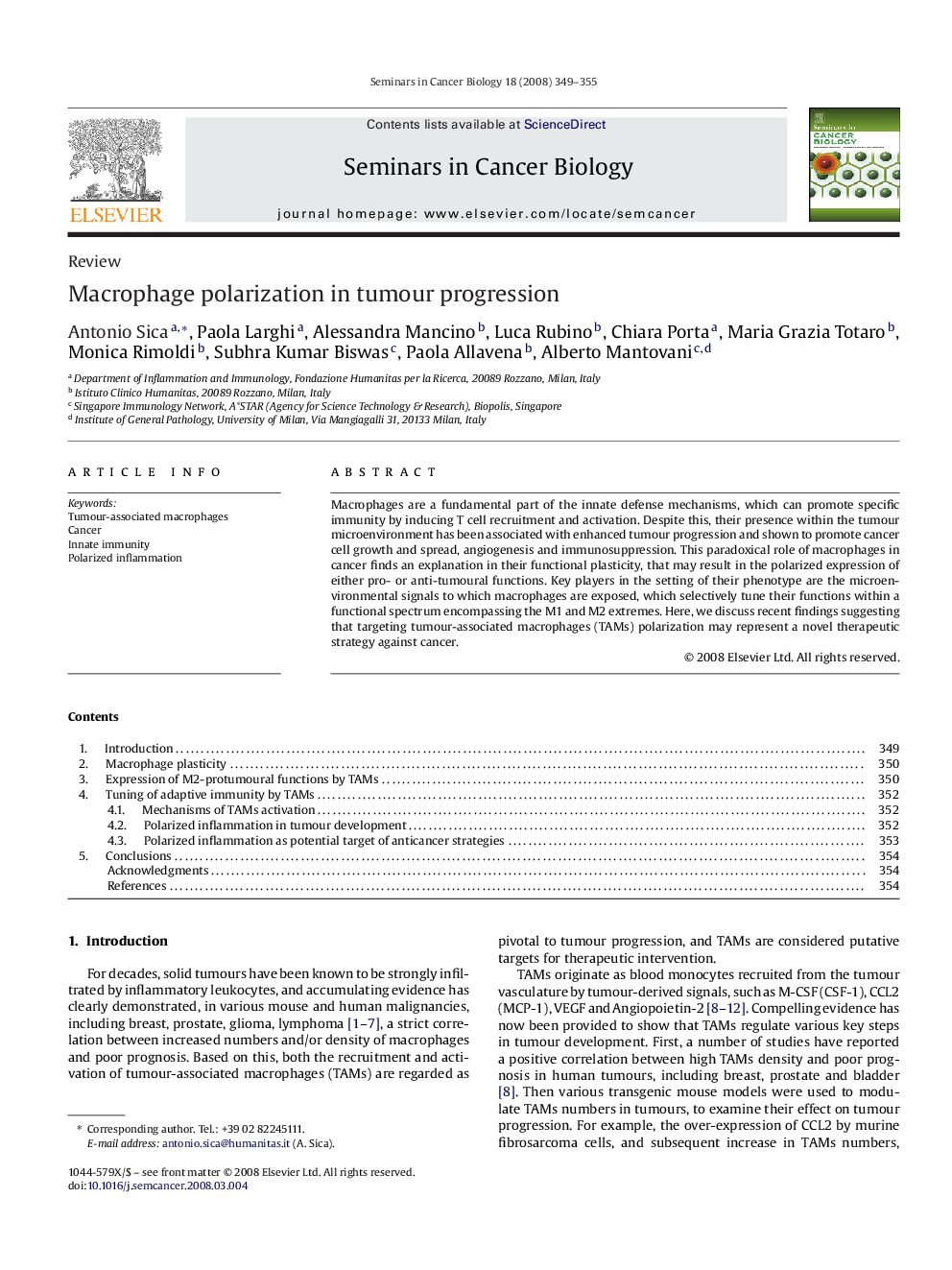| Article ID | Journal | Published Year | Pages | File Type |
|---|---|---|---|---|
| 2024054 | Seminars in Cancer Biology | 2008 | 7 Pages |
Macrophages are a fundamental part of the innate defense mechanisms, which can promote specific immunity by inducing T cell recruitment and activation. Despite this, their presence within the tumour microenvironment has been associated with enhanced tumour progression and shown to promote cancer cell growth and spread, angiogenesis and immunosuppression. This paradoxical role of macrophages in cancer finds an explanation in their functional plasticity, that may result in the polarized expression of either pro- or anti-tumoural functions. Key players in the setting of their phenotype are the microenvironmental signals to which macrophages are exposed, which selectively tune their functions within a functional spectrum encompassing the M1 and M2 extremes. Here, we discuss recent findings suggesting that targeting tumour-associated macrophages (TAMs) polarization may represent a novel therapeutic strategy against cancer.
